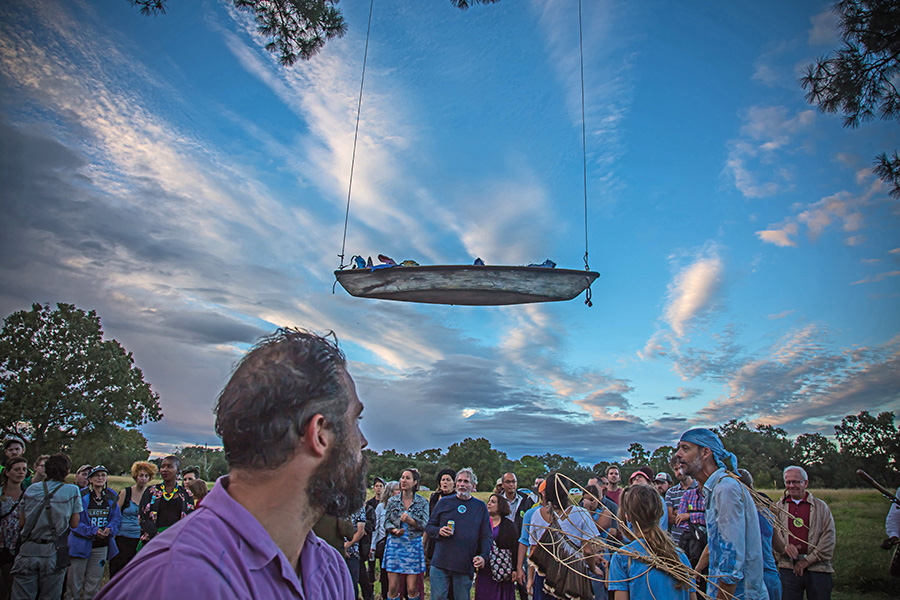This story is part of a special issue on theatre and climate change; the whole package is here.
Were humans in pre-atomic ages as prone as we now seem to be to apocalyptic imaginings? History would seem to say yes—that long before we built weapons that could literally obliterate the world as we know it several times over, our ancestors already feared (or hoped) that the ravages of plague, war, famine, natural disasters, and/or some kind of divine judgment would effectively wipe the fragile human family off the face of the Earth.
We still live under the terror of all those threats, not to mention with arsenals of world-destroying weapons still poised to strike (look up the Doomsday Clock if you’re jonesing for a reality check). But in the last few decades another existential peril has come into alarming view: the global climate crisis, which, depending on your perspective, is already irreversibly upon us or may still be, just barely, mitigable in its worst manifestations. Much has already been written and spoken about the intractable paradoxes of this crisis: that it is both desperately urgent and inevitably gradual; that it seems to demand a kind of negative or aversive ambition in the name of an inarguable human good; that it requires collective action across not only distance but time, with people we not only don’t know but can’t know because they are not yet born. While we seem to have little trouble creating art, setting aside funds, or forming institutions that we hope will long outlive us, we seem to be stubbornly unable to prepare well in advance for the sustainable future of our shared environment.
Collective political action and individual adjustments are both self-evidently needed. These include efforts to mitigate not only overall environmental devastation but the glaring injustices of its distribution—the phenomenon some have called “eco-apartheid,” in which pollution, waste, and other effects of climate change disproportionately affect poor and marginalized populations. It may or may not be helpful to think of these efforts, and other related attempts to make our lives more equitable and livable, the way I sometimes think of religious practice, as a kind of deadly serious acting exercise—i.e., that whatever our ultimate theological beliefs may be, our world would be immeasurably better off if we acted as if charity, humility, justice, forgiveness, and welcome were indeed the immutable laws of the universe. A greener, more sustainable world, it seems to me, could similarly be seen as its own reward, not least for future generations but also for us building it together here, now.
Collective world-building is something theatre artists well understand. In several stories in this issue, we look at the impact that climate change is having on contemporary theatre practice, and the salutary effects theatremakers might have on their environment in turn. We also survey a growing literature of theatre about the climate crisis, and go on the ground with artists making work on one of the frontiers of that crisis (in New Orleans). Leaving aside the well-worn argument over whether any single play can change minds or “save the world,” it doesn’t seem like a stretch to posit that theatre—a labor- and human-intensive art form in which we share an experience in real time and space—is well positioned to model a better way to take up space in the world, even to dream and live a new one. To share moments of communion, and to build a world in which they can continue to be shared, seems as good a source of hope as any I can imagine.


